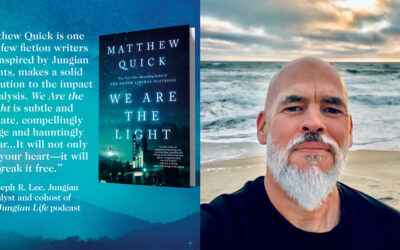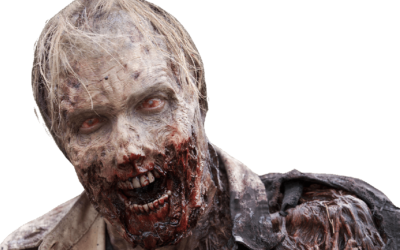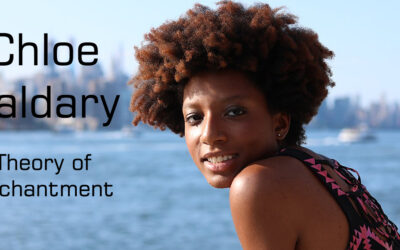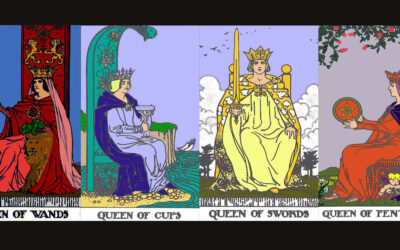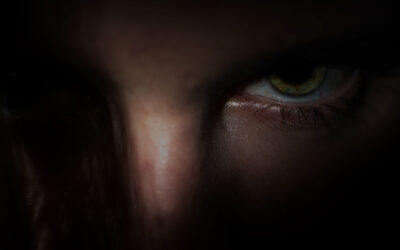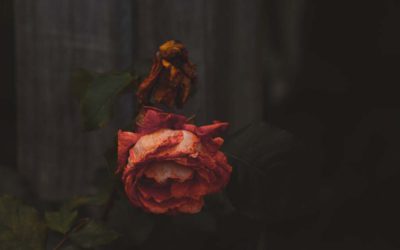Games introduce us to conditions of life, for we must play the hand we’ve been dealt. Confronted with the limitations of ego and understanding, we may discover that games are metaphors for the movement of a mysterious cosmos.
STAY AT HOME DADS: emerging potentials in the father archetype
Nov 17, 2022
As our bonds to historic roles loosen, fathers are finding new ways to express themselves within the family dynamic. Being caregiver and homecreator does not diminish their experience of masculinity but rallies inner resources that had been set aside.
Matthew Quick on Jung, heartbreak, and healing in his new novel We Are the Light.
Nov 3, 2022
Matthew Quick, author of The Silver Linings Playbook, shares himself and his new book, We Are the Light. Writer’s block led Quick to This Jungian Life podcast, analysis, and letter writing as a literary device.
Zombies: a call to consciousness
Oct 27, 2022
Zombies have recently risen from mythological depths to menace modern-day culture. Zombies image the horror of vulnerability to dehumanized existence. They exist in a meaningless void marked only by insatiable appetite; they are our collective’s pathological shadow. The undead alarm us–and can also awaken us. We are summoned to contend with dark and deadening powers through vigilance, consciousness, and action. Jung says, “If you will contemplate your lack of…inspiration and inner aliveness, which you feel as sheer stagnation and a barren wilderness, and impregnate it with the interest born of alarm at your inner death, then something can take shape in you, for your inner emptiness conceals just as great a fullness if only you will allow it to penetrate into you. If you prove receptive to this ‘call of the wild,’ the longing for fulfillment will quicken the sterile wilderness of your soul as rain quickens the dry earth.”
Theory of Enchantment: Chloe Valdary
Sep 22, 2022
Could the antidote to racism be enchantment? Chloe Valdary thinks so. Theory of Enchantment is a radical approach to anti-racism rooted in understanding that celebrates the complexity of the human spirit.
THE QUEEN: Archetype & Individual
Sep 15, 2022
Queen Elizabeth II is mourned around the world. The world saw stages of life live in and through her: from maiden to mate, mother to matriarch, elder to aged. She inherited her title but grew into her role, becoming a unifying image of virtue, service, stateliness, and constancy–wrapped in dedication and devotion. Above the skirmishes of ego-driven politics, the Queen balanced the mystique of majesty with human presence. She bore difficulties and disappointment with dignity, and in the 70 years of her reign modeled a standard of nobility that enabled her to preside over tumult and change. Elizabeth II first governed herself, enabling authentic representation of the archetype of queen in its beneficent aspect: steadfast, valiant, and faithful to enduring ideals of sovereignty. Queen Elizabeth II fulfilled the promise of the crown, ancient symbol of exalted life, conferring its possibility and promise upon subjects and admirers worldwide.
ROAD TRIP: outer journey, inner mission
Sep 8, 2022
The open road beckons: bigger, better, boundless. To see and to seek is a mythological theme with an American stamp, from wagon trains to memoirs and movies. Progress and mobility have long been associated with forging ahead and hitting the trail. Cars are personal capsules of autonomy and freedom: load, stop, and go according to wish or whim. Passing through and possibility are part of the road trip’s drift and direction. The traveler may hope for treasure, pleasure, or revelation—or be in flight from stasis, failure, and alienation. A road trip can be planned or spontaneous, solo or partnered, an initiation into the next stage of life, or an effort to evade it. Many are about relinquishing ego’s desire for a well-mapped destination and opening a path to psyche and Self. A road trip is an inner journey in the outer world. What will we encounter that reveals us to ourselves?
HATRED: a way to hide our secrets
Sep 1, 2022
Hatred is a universal human emotion related to distancing and destroying. Hatred is anger, disgust, judgment, and contempt cemented into implacable permanence. Obsessive and inflating, hatred dupes us into feeling righteous and wrathful instead of small and wounded.
Can We Consider Abortion?
Jun 30, 2022
Issues like abortion test our ability to tolerate ambiguity and anxiety without activating the polarizing defenses of judging, moralizing, or demonizing the other.
DEATH: A Jungian Perspective
Jun 10, 2022
Awareness of death can help us create an intentional life—one that serves the movement of soul toward wholeness. Jung realized that although we experience death as “a fearful piece of brutality,” the unconscious images death as celebration.
POISON: Toxic or Transformative?
May 26, 2022
Pharmakon, the ancient Greek word for drug, can mean both “remedy” and “poison.” There is a close connection between poison and cure. Poison is stealthy, and takes us by surprise, whether through an unseen snake’s venomous bite or a ripe apple’s alluring disguise. Psychological poison glides past our defenses, pervades our being, and wounds us where we are most vulnerable. We participate in our poisoning through our own unknowing, from toxic cognitions and rigid fixations to self-doubt and self-sabotage. Poison can transform us by stinging us into building the immunity of increased consciousness and insight. Reason and objectivity can act as antidotes, allowing old attitudes to dissolve and new awareness to arise. Whether a poison is injected or ingested, we can use it for cure.
SHADOWLAND: DETRANSITION – THE STORY OF BETH
Apr 28, 2022
Beth underwent gender transition from natal female to trans male and has since de-transitioned.


